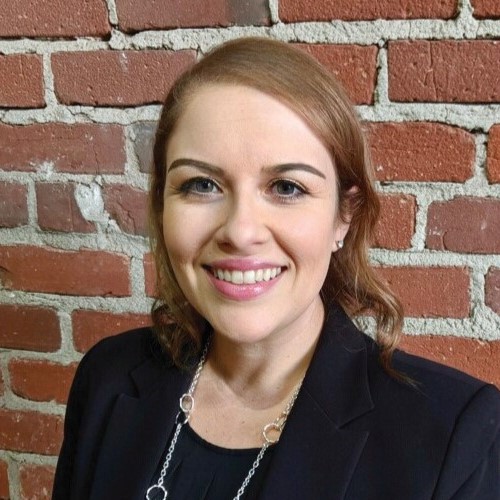A growing number of professionals in a variety of fields are going to law school to learn how the law affects their businesses.
They don’t necessarily need or want a law degree, but they want insight into the role law plays in their chosen work. It can help them do their jobs better and make them more valuable employees.
Indeed, some employers recommend studying law and help pay for it. Hence, a growing number of schools now offer a Master of Legal Studies, also known as a Master of Studies in Law or a Master of Jurisprudence. And a great way to get the degree is by studying online.
Indeed, an online master’s program may be the perfect vehicle.
Why? Because most people interested in pursuing such degrees have full-time jobs and/or families and need flexibility.
A law school in their region may not have the type of program they need. But with online programs, they can shop nationwide for the right fit in the comfort of their homes.
Also, the traditional J.D. takes three years of full-time schooling and a whole lot of money. It’s quite a commitment for someone who has no interest in practicing law. The MSL program is best suited for people who have established jobs, but where legal matters arise often. It’s another tool in the toolbox.
Those working in jobs that have substantial legal context are most likely to benefit from such a program.
Mitchell Hamline School of Law is just one of many schools offering master’s programs online. All you need is a bachelor’s degree to be eligible.
Ever hear of the dreaded Law School Admission Test (LSAT)? Don’t worry. You don’t need to take it.

The focus on business-related topics is one reason for the growing popularity of such degrees. Many professions are becoming increasingly complex because of regulatory demands. Fields such as health care, compliance, risk management, human resources and energy need professionals who can navigate some pretty legally dense work.
But these online programs are not law school-lite, either.
Rosanna Coviello wanted to advance her career. The New Jersey native had been working as a compliance analyst at Gladstone Wealth Partners for a few years and was ready for her next step. She looked into law school but wasn’t certain she could make the three-year commitment of time and energy.
“My ultimate goal was to become a chief compliance officer, but I don’t need a J.D. to do that,” Coviello said. “I wanted to gain some additional knowledge about financial services compliance and learn more about law before deciding if law school was the right path for me.”
So instead of going after a J.D., Coviello pursued a Master of Legal Studies degree at Seton Hall University School of Law in Newark, New Jersey.
An attorney who represents clients usually must graduate from a three-year law school, pass the bar exam, and then stay up to date through continued education.
But many, like Coviello, have no desire to represent clients. They just need to gain legal knowledge, which makes the MLS the better option for them.
Students who enroll in the MLS program at Seton Hall University can focus on general legal studies or select one of six concentrations: Corporate Compliance; Health and Hospital Law; Gaming Regulation and Compliance; Pharmaceutical and Medical Device Law & Compliance; Privacy Law and Cyber Security; and Sports Law and Compliance.
Barbara-Ann Boehler, senior director of the Corporate Compliance and Ethics program at Fordham University School of Law, said there is a seriousness of purpose when you take on a master’s degree program and invest in your future.
“People respond to that in a positive way in the marketplace,” she said. “It’s not a generic degree. It’s a purposeful degree.”
Fordham Law students can complete the MSL in Corporate Compliance online or in person and can complete in a little over two years.
One requirement is that students come to campus for a two-day compliance colloquium.
In a survey of students conducted last year, 93% felt that the program was impactful to their career, which can include a variety of things like a bump in salary or an expanded role.
“It’s more than a certification,” Boehler said. “It shows a commitment to the discipline.”
The opportunity for networking with fellow classmates and alumni is also a plus.
“People are now purposefully choosing this as a job instead of falling into it,” Boehler said. “There is a rich diversity of thought — whether students have an MBA, JD, MSL or are an accountant.
The students that you meet in coursework and the adjuncts teaching become part of your network.”
Clémence Kucera, assistant dean for graduate, online and international programs at University of the Pacific, McGeorge School of Law in Sacramento, California, said a J.D. can open many doors, but it’s not a requirement unless the person plans to practice law.
McGeorge School of Law offers a Master of Science in Law program that focuses on the practical skills that students need for career growth or to enter a specific profession.
“While students walk away with legal knowledge, they don’t have to take the 88 units that law school requires or prepare for the bar,” Kucera said.
Students at McGeorge School of Law can select from specific areas of concentration, which include Government Law & Policy, Water & Environmental Law, Business Law, Human Resources Law and Health Law. The first three can be completed fully online or through a mix of in-person and asynchronous online classes.
The other two are only offered in the hybrid format.
“Students can also choose to customize their degree, taking a mix of in-person and online courses in areas that are pertinent to their degrees,” Kucera said.

Many MSL students at McGeorge School of Law are working professionals who are taking classes on a part-time basis, but others are students hoping to use the degree to jumpstart a career in a particular field.
Amanda Richie earned her MSL in Government Law & Policy in 2018, before the program went online.
“For me, getting an MSL was the best of both worlds,” said Richie, who is now a policy consultant for the Senate Republican Caucus in Sacramento. “It was a shorter version of law school that provided me with the classes I needed.”
There was also a time element because Richie wanted to start her career as soon as possible.
“I did not want to commit to four years of night classes to get a J.D. that I did not technically need,” she said.
— Mike Stetz and Sherry Karabin contributed to this story

